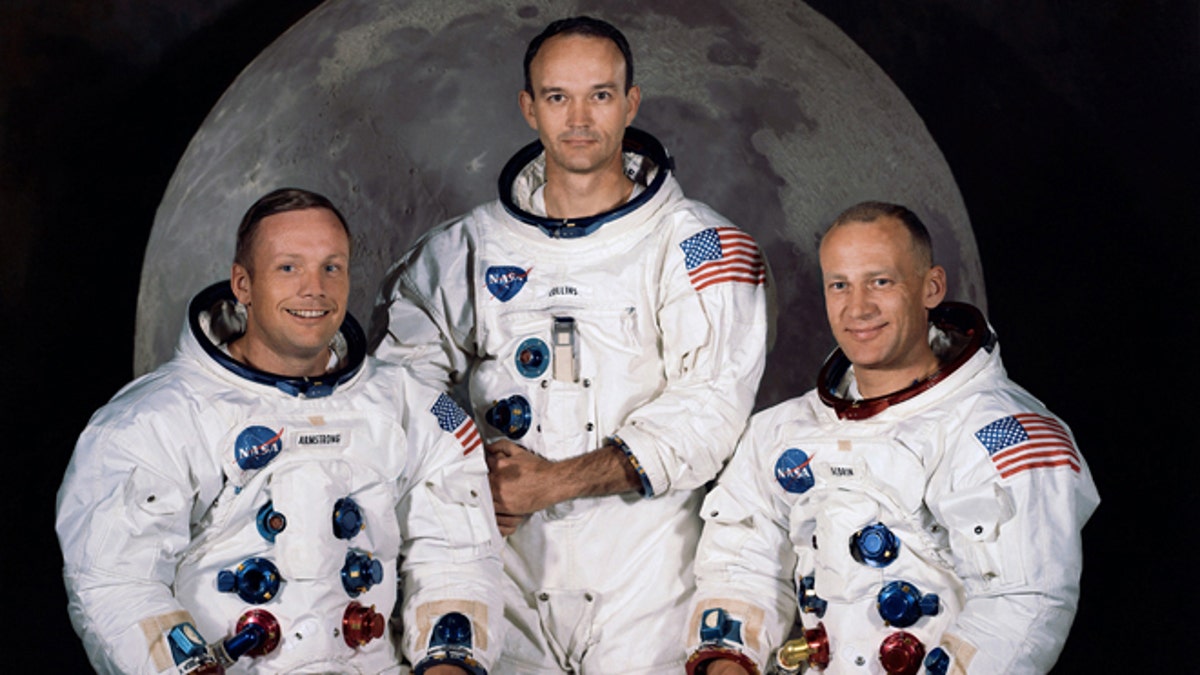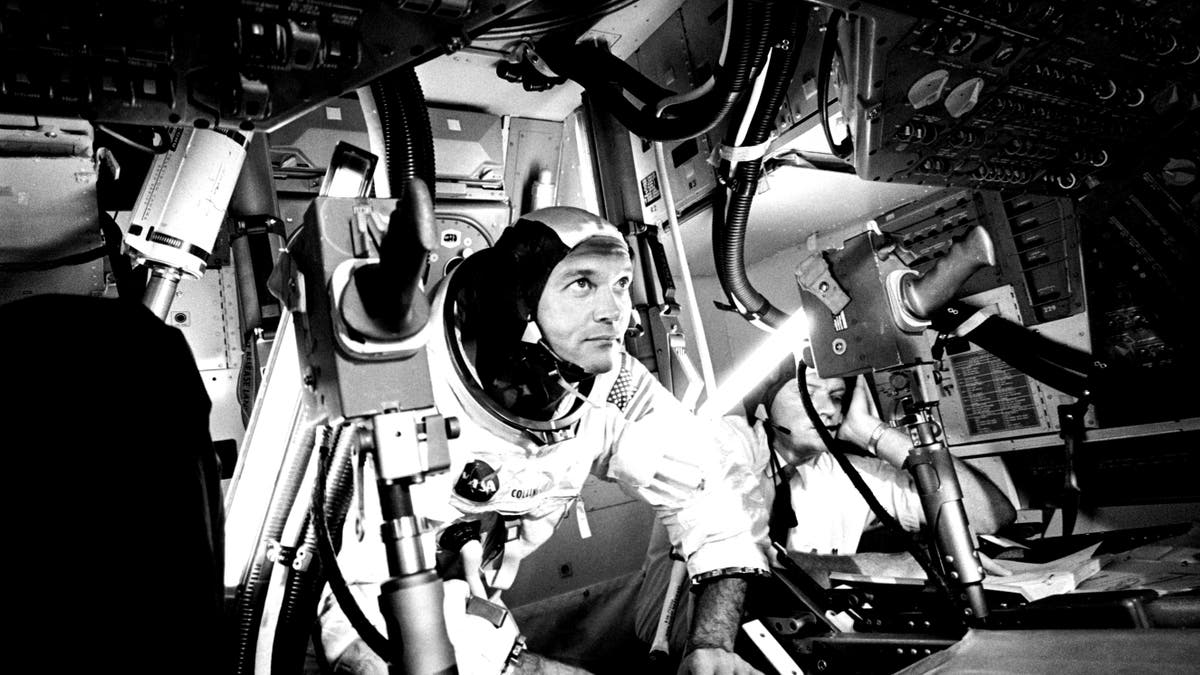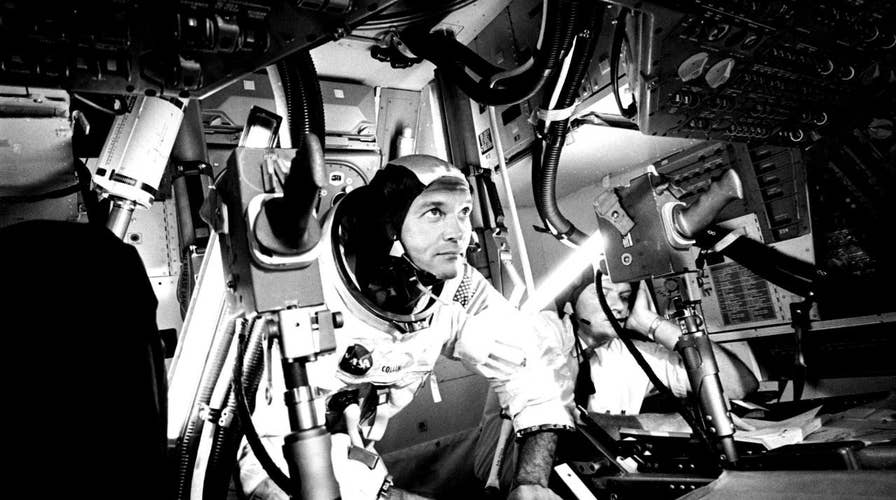Apollo 11's Michael Collins reflects on historic Moon landing: 'We were just regular astronauts'
Michael Collins reflecting on the moon landing calls himself a ‘regular astronaut’
Michael Collins may not be a household name like his fellow Apollo 11 crew members Neil Armstrong and Buzz Aldrin, but he played a pivotal role in the success of the epic mission.
When Armstrong and Aldrin were taking their famous first steps on the Moon on July 20, 1969, Collins was orbiting 60 miles above them in the mission’s command module.
Each time the Columbia Command Module orbited the Moon, he would lose contact with Mission Control in Houston for more than 40 minutes at a time. As a result, he has often been described as “the loneliest person in the universe.”
This, however, could not be further from the truth, he explained during an interview with Bob Cabana, the director of NASA’s Kennedy Space Center on Tuesday. “I was always asked ‘Wasn’t I the loneliest person?’” he said. “The answer was ‘No, I felt fine’.”

1. Neil Armstrong, Apollo 11, 1969: The crew of the Apollo 11 mission -- from left Neil Armstrong, Mission Commander, Michael Collins, Lt. Col. USAF, and Edwin Eugene Aldrin, also known as Buzz Aldrin, USAF Lunar Module pilot. In all, 12 Americans walked on the moon from 1969 to 1972. (NASA)
Collins, a former U.S. Air Force fighter pilot and experimental test pilot had spent a lot of time flying airplanes by himself. Additionally, the extensive training undertaken by the Apollo 11 astronauts meant that he was extremely familiar with the Command Module. “I trusted my surroundings,” he said.
“It was perfectly enjoyable, I had hot coffee, I had music if I wanted it,” Collins added. “I was not one iota lonely … it was 40-something minutes of peace and quiet.”
APOLLO 11'S MICHAEL COLLINS REFLECTS ON HISTORIC MOON LANDING: 'WE WERE JUST REGULAR ASTRONAUTS'
After spending a total of 21 hours and 36 minutes on the Moon, Armstrong and Aldrin’s lunar module lifted off and docked with Collins’ Command Module almost four hours later.

Pilot Michael Collins at Apollo 11 Command Module, practicing docking hatch removal from CM simulator at NASA Johnson Space Center, Houston, Texas, June 28, 1969. Image courtesy National Aeronautics and Space Administration (NASA). (Photo by Smith Collection/Gado/Getty Images)
Fifty years after the incredible events of Apollo 11, Collins paid tribute to Armstrong, who died in 2012. “The Neil that I usually think about is not Neil flying to the Moon and back, although he did a superb job as the mission commander.”
Rather, Collins recalls Armstrong’s incredible ability to share the experiences of Apollo 11 following the crew’s return to Earth. Although something of an introvert, Armstrong wowed audiences during the “Giant Leap” global goodwill tour undertaken by the Apollo 11 astronauts and their wives from Sept. 29 to Nov. 5, 1969.
APOLLO 11 FLIGHT DIRECTOR REMEMBERS HISTORIC MISSION TO THE MOON
“He was a masterful speaker,” he said. “He would have the audience feeling they had almost climbed aboard Columbia with us by the time he had finished his speech.”
Collins, who had been the pilot of the Gemini 10 mission in 1966, explained that he turned down an opportunity to be the commander of Apollo 17.
“That would be another three years of living in dingy hotels,” he said, noting that he did not want to be separated from his “wonderful” wife and young children.
The interview at Kennedy Space Center’s launch pad 39A commemorated the 50th anniversary of the Apollo 11 launch on July 16, 1969.
CLICK HERE TO GET THE FOX NEWS APP
Be sure to catch the America’s News HQ Apollo 11 50th anniversary special on Fox News on Saturday, July 20 at 12 PM EDT.
Follow James Rogers on Twitter @jamesjrogers









































